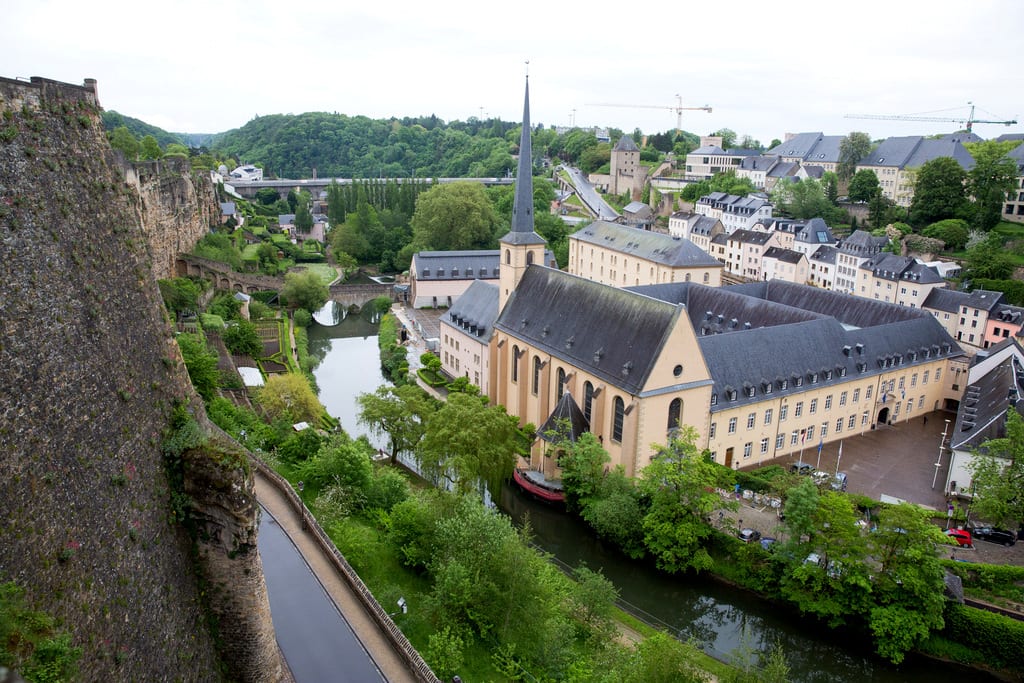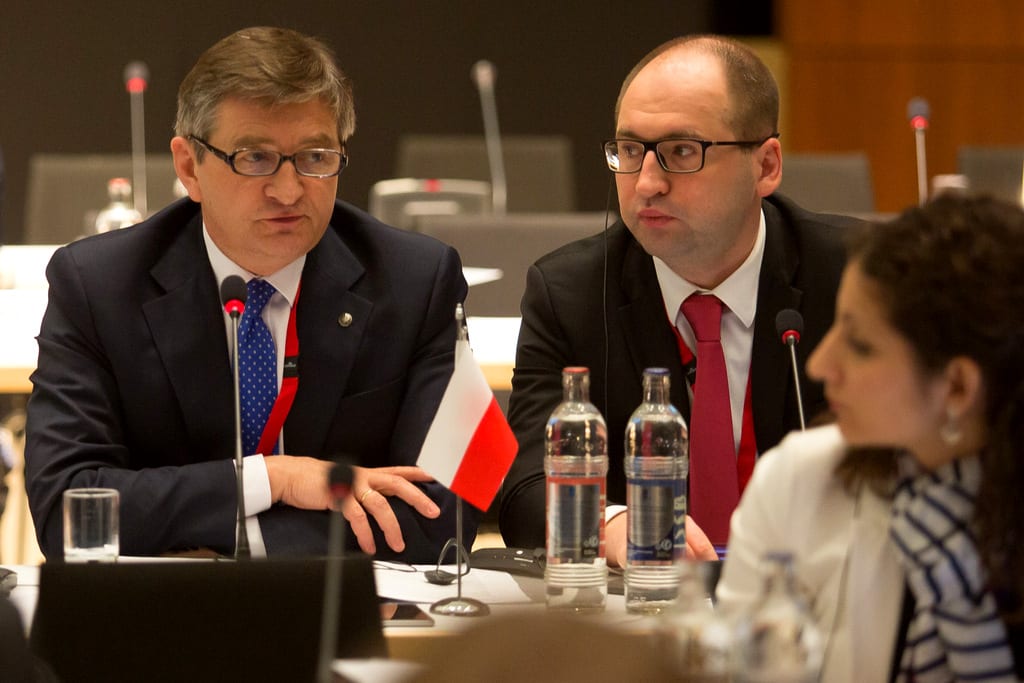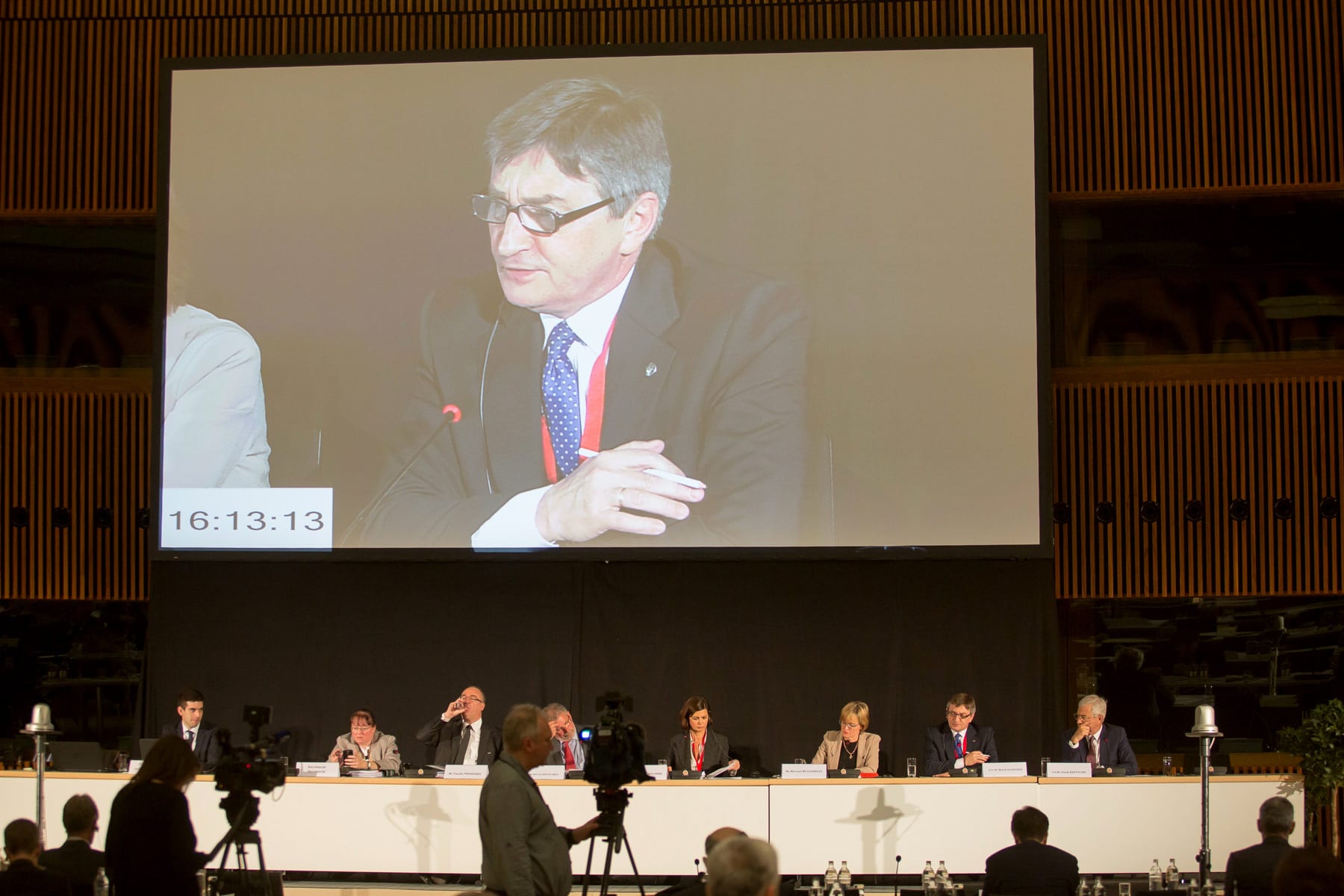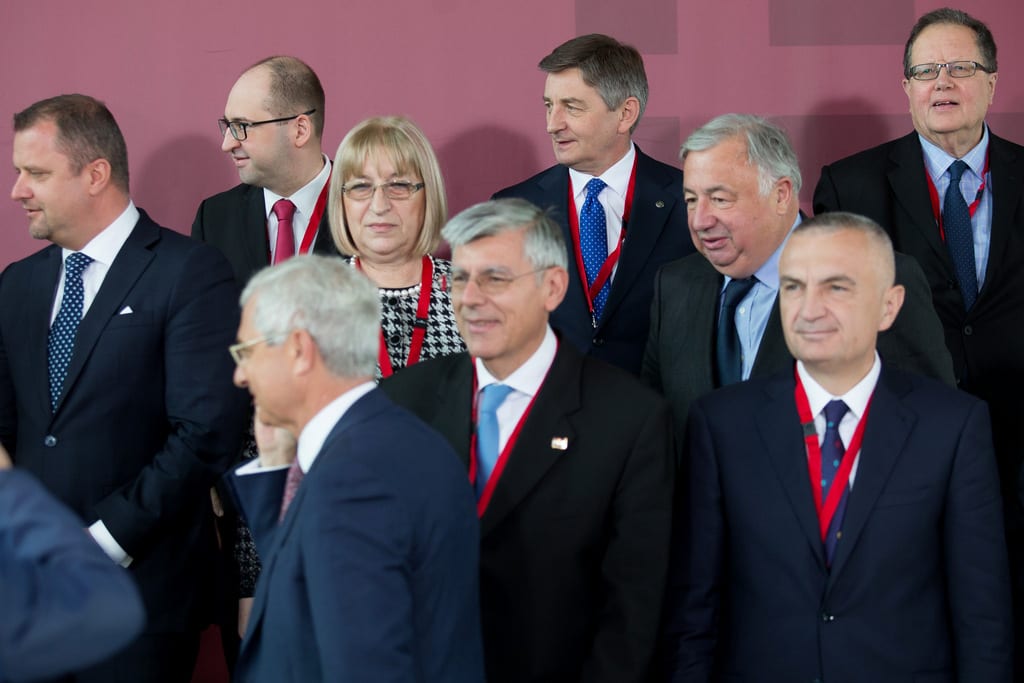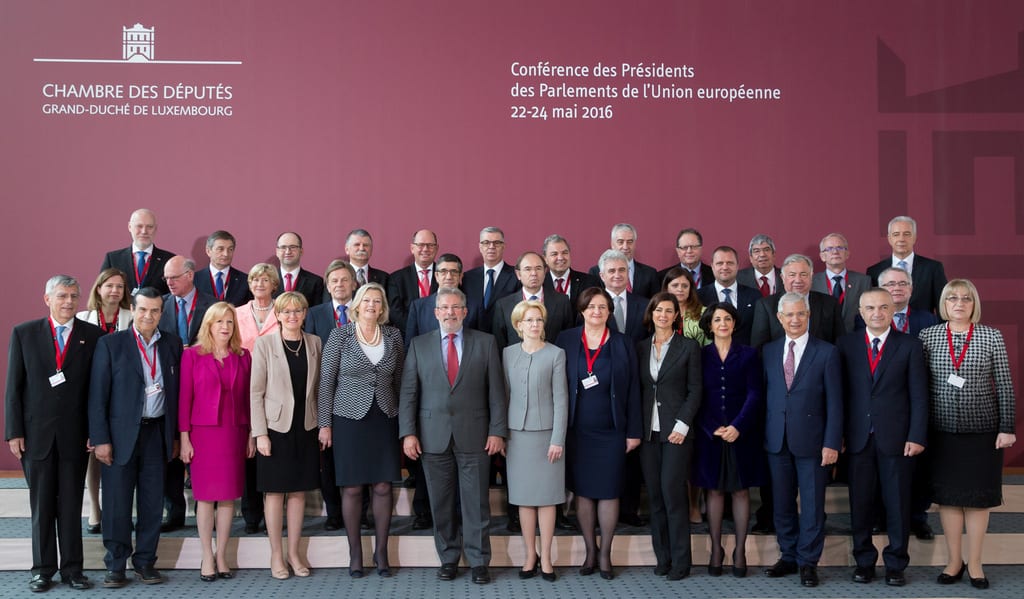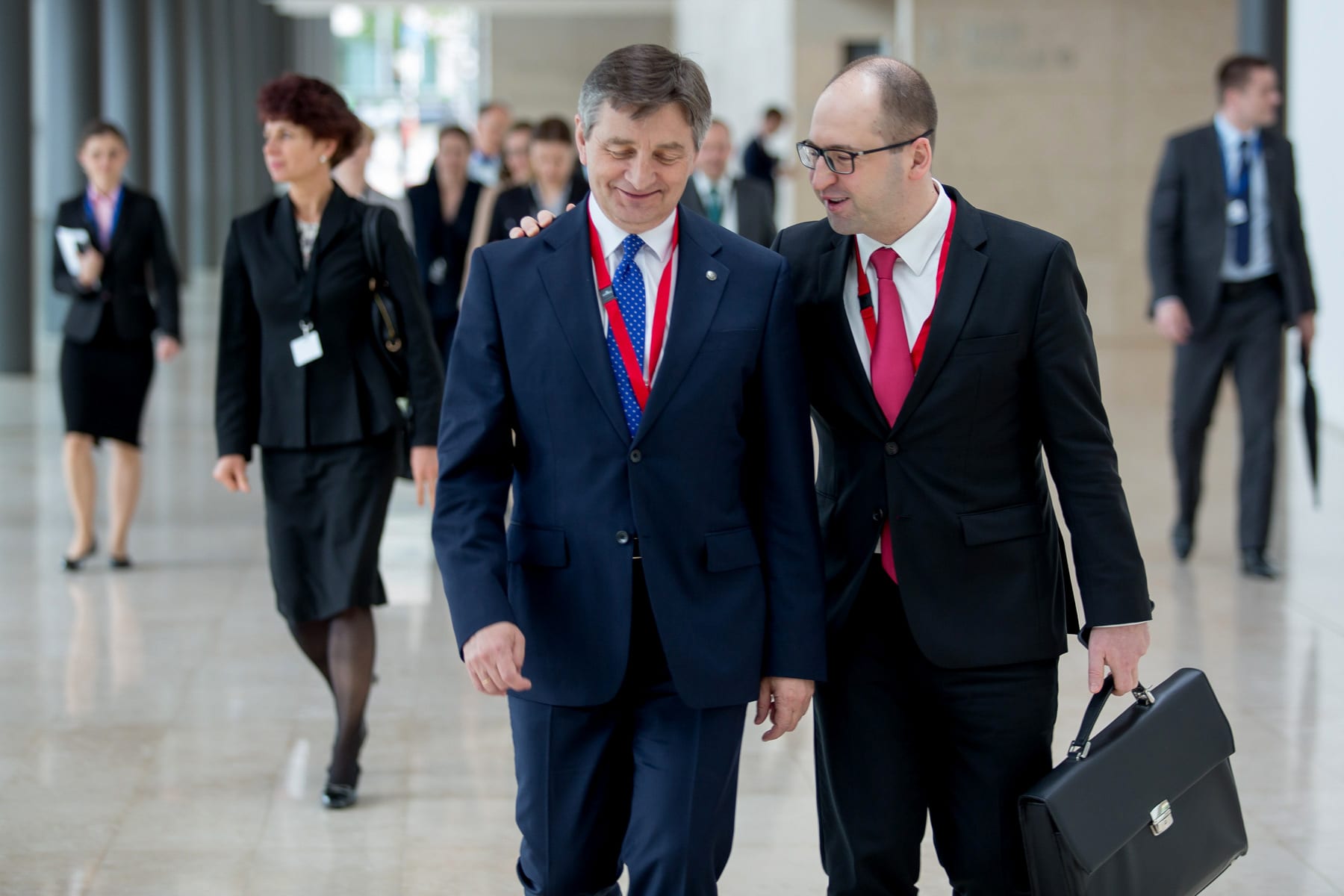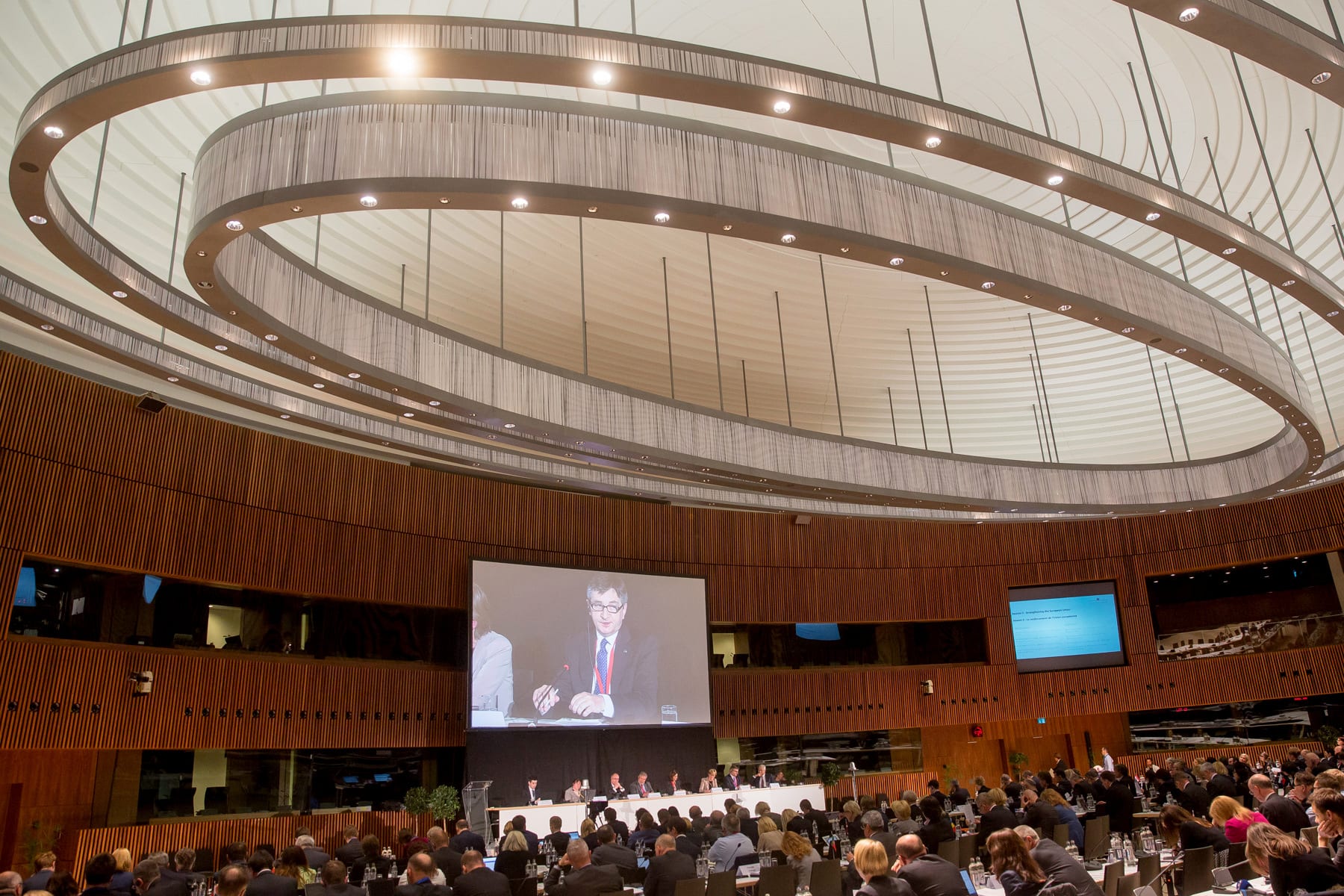Two sessions were held: on the migration crisis and the future of the European Union. The meeting was opened by the president of the Chamber of Deputies of the Grand Duchy of Luxembourg, Mars di Bartolomeo.
President Bartolomeo mainly drew attention to current problems affecting the European Union, including the migrant crisis and terrorist threats. He stressed that the European Union is a common security project. - The Union is a project of peace, democracy, security and solidarity.
During the first part of the meeting, politicians discussed the management of migration flows. The massive influx of refugees and migrants is one of the main problems currently affecting the European Union. May 13, 2015. The European Commission has published a strategy as part of the European Agenda on Migration, which aims to address the immediate challenges posed by the continuing crisis. The International Organization for Migration reports that more than 180,000 migrants and refugees arrived in Europe in 2016. The discussion was opened by European Commission President Jean-Claude Juncker. He spoke, among other things, about legal migration and the agreement with Turkey. As he stressed, the commission plans to prepare a proposal for a plan for legal migration to Europe - migration under control. President Juncker also noted that on issues related to the illegal influx of refugees, it is very important for the Union to cooperate with Turkey.
Deputy Senate Speaker Adam Bielan, among others, also spoke at the discussion. As he noted, Poland positively assesses the conclusions of the March 2016 European Union-Turkey summit on the control of migrant flows across the Aegean Sea. As he stressed, effective implementation of the adopted measures, including, in particular, Turkey's application of its readmission commitments, could be key to solving the problems of irregular migration. Discouraging illegal migration, fighting smugglers' routes and securing the Union's external borders and transit routes are issues that will allow us to regain control over the flow of migrants, Bielan noted. The deputy speaker also noted that parallel to the problem of migrants from Syria, there are also those in need of help in eastern Europe. - (...) 800,000 economic migrants from Ukraine and 80,000 political refugees from Chechnya have arrived in Poland so far, he stressed. He added that for Ukrainians Poland is a culturally and civilizationally close country, and therefore a migration destination.
Sejm Speaker Marek Kuchcinski noted that migration in the European Union has different emphases, with different emphases in Central and Eastern Europe and the Middle East. The Speaker stressed that migrants from the eastern part of Europe, including Ukraine, and repatriates are close to Poland.
The politicians also raised issues related to the relocation and resettlement of refugees, and discussed, among other things, the system of organized resettlement and asylum policy. The heads of national parliaments also exchanged views on the issues of the Common European Asylum System (CEAS), the future of the Schengen Area and the security of the EU's external borders.
In the second part of the Conference of Speakers of Parliaments of the European Union, politicians discussed the future of the Union. On September 14, 2015, the presidents of the parliaments of Italy, Germany, France and Luxembourg signed a declaration in Rome calling for a significant increase in political integration within the federal European Union. On April 15, 2016, Sejm Speaker Marek Kuchcinski proposed a draft of a new declaration, "Europe of Solidary States," which was given a positive opinion by the Sejm's European Union Affairs Committee on May 12. The document addresses issues of security, borders and the renewal of EU institutions.
Speaker of the Sejm Marek Kuchcinski spoke about security, the renewal of EU institutions and the project of a Europe of solidarity among states (homelands). As he noted in his speech: decisions on the renewal of the European Union can only be made on the basis of the consent of the sovereign states of the Union's members and in accordance with the will of the societies, expressed by national parliaments or by referendum. According to the Speaker, only such a procedure will give credibility to the European institutions. As Speaker Kuchciński stressed, the European institutions were established to help member states and work for the common good. He added that their task cannot be to impose their will on the citizens of member states.
In his speech, the Speaker of the Sejm referred to five main issues related to the future of the EU: security, the migration crisis, the even development of the Union, European parliamentarism and the legitimacy of EU authorities and institutions.
Speaking about security - both inside and outside the Union - Speaker Kuchciński paid particular attention to the issues of uncontrolled migration and terrorism. He noted that the European Union should provide real support to member states, as they are the ones capable of taking quick and effective security measures. He added that the solution to the migration problem must be based on the subjectivity of member states, respect for the identity of European nations and the guarantee of human rights. All coercive measures will be ineffective and detrimental to European integration, he pointed out. The Speaker also stressed that assistance to migrants should be provided within the capabilities of individual states and as a result of their own sovereign decisions, with the support of EU institutions.
Sejm Speaker Marek Kuchcinski also said at today's meeting that the importance of national parliaments in the decision-making process should be strengthened. On the other hand, he pointed out, EU institutions need a clear definition of their competencies. The EU does not need new institutions or a uniform electoral law, the Speaker added. The principle should be compliance with European law, not its free and extended interpretation.
Speaking about the shape and future of the European Union, Sejm Speaker Marek Kuchcinski stressed that it should be a Europe of solidarity states, a Europe of homelands.
Tomorrow's conference agenda includes other topics, including the role of national parliaments and inter-parliamentary cooperation, and ensuring citizens' security while respecting fundamental freedoms.
On May 24, the meeting was opened by the President of the Bundestag Norbert Lammert and the Swedish Riksdagen Urban Ahlin.In the first part of the meeting, talks focused on the role of national parliaments and inter-parliamentary cooperation.
The participants also exchanged opinions on security issues. The Presidents of the Chamber of Deputies of the Grand Duchy of Luxembourg Mars di Bartolomeo, the Italian Senate Pietro Grasso and the Estonian Riigikogu Eiki Nestor introduced the conversation.
The role of national parliaments and inter-parliamentary cooperation
As part of this part of the joint session, politicians discussed, among other things, green and red card procedures and parliamentary control over Europol. The debate on the new procedures was launched at the last presidents' meeting in Rome in 2015. The talks will be supplemented by the conclusions of the discussions held at the Conference of Union Affairs Committees of Parliaments of the European Union (COSAC). The so-called green card procedure is understood as the rights of national parliaments to initiate legislation. The red card procedure, on the other hand, is part of the early warning mechanism and allows work on a draft legislative act in the Council to be stopped on the grounds that it does not comply with the principle of subsidiarity. As emphasized in the discussion, it is the national parliaments that constitute the voice of citizens in the European discussion.
Speaker of the Sejm Marek Kuchcinski, among others, also spoke. In his speech, the Speaker drew attention to several issues. As he pointed out, Poland is aware that after 12 years of membership in the European Union, the parliament has lost about 60 percent of its competencies. He also agreed with other speakers that there is a need to strengthen national parliaments, and as he stressed - Poland also agrees with this. Speaker Kuchcinski also noted that there is a need for a compromise: membership in the community, but preserving the powers of parliaments and sovereignty. The Speaker also said that the Polish parliament supports the EU's card mechanisms, especially the green card, which gives the national chambers the legislative initiative. Among other things, Marek Kuchcinski also made a proposal to extend work on EU projects in national parliaments from the current 8 weeks to 12.
Since 2009. Europol is an EU agency funded from the EU budget and, in accordance with Article 88 of the Treaty on the Functioning of the European Union, operates under a regulation adopted through the ordinary legislative procedure. Its task is to enforce the law, increasing the level of security in Europe by providing assistance to law enforcement agencies in EU member states. The Europol Regulation will enter into force on May 1, 2017. It stipulates that the European Parliament and national parliaments will form a joint parliamentary control group to monitor Europol.
Ensure the security of citizens while respecting fundamental freedoms
This was the last of the conference topics. During the debate on this item, the issue of strengthening cooperation among member states in the fight against terrorism and joint efforts to improve security was discussed. The recent terrorist attacks in Europe have brought security issues to the top of the political agenda once again. President Mars di Bartolomeo stressed that the European Union pays tribute to all the victims of the terrorist attacks that have taken place in Europe in recent months. He also noted that it is important to maintain a balance between security and civil liberties.
Deputy Senate Speaker Adam Bielan also spoke about security. - Ensuring the security of citizens is the priority of the Polish government, he said. The deputy speaker also stressed that freedom and security are reconcilable. According to Deputy Speaker Bielan, lawmakers must imaginatively balance the rationales. As he pointed out, Poland supports the fight against terrorism both at the community level, but also, among others, within the framework of the UN, and is also a member of the international coalition fighting the so-called Islamic State. He also stressed that mutual trust between member states is crucial to the sustainability and functioning of the European Union. He added that this trust should also manifest itself in respect for the internal decisions of democratically elected national authorities.
***
The Conference of Speakers of the European Union Parliaments is, among other things, a forum for discussing the role and tasks of national parliaments in the European structure, inter-parliamentary cooperation in EU affairs and the challenges facing the European Union. The conference consists of the presidents of the parliaments of EU member states and the president of the European Parliament. The conference meets on the basis of consensus, respecting the autonomy and constitutional location of the participating presidents. Meetings conclude with the adoption of conclusions, which should reflect the common position of the EUPP, but are not binding on individual parliaments. The last meeting of the EU KPP was held in April 2015 in Rome.
text: Chancellery of the Sejm
photo: Pawel Kula
